How to Request for Description
Apart from adding the a description to the data assets directly, users can also request to update description. This is typically done when the user wants another opinion on the description being added, or if the user does not have access to edit the description. Requesting for a description will create a Task in OpenMetadata.
- Click on the ? icon next to Description
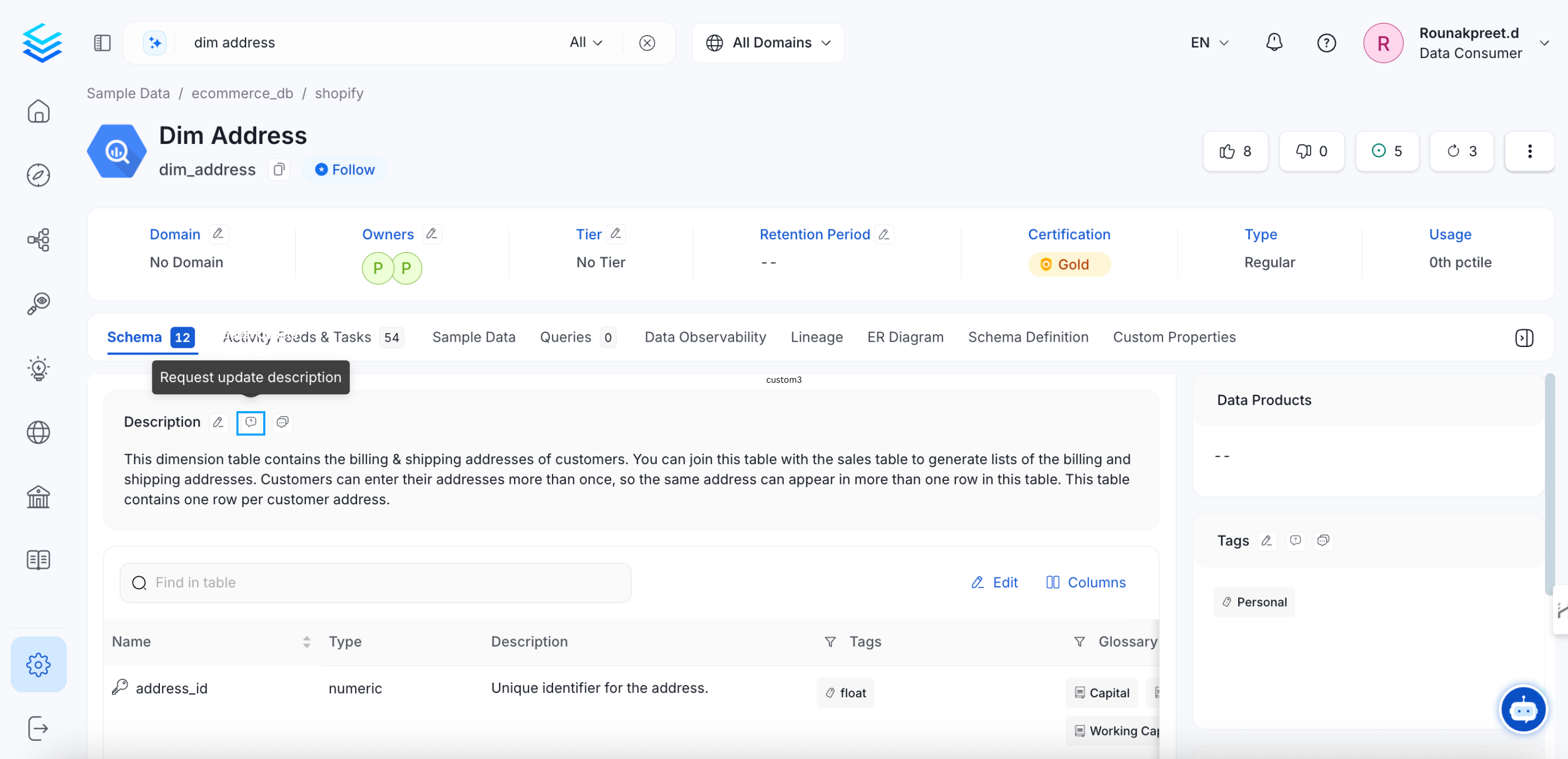
Request for Data Asset Description
- A Task will be created with some pre-populated details. Fill in the other important information:
- Title - This is auto-populated
- Assignees - Multiple users or teams can be added
- Description - Add the new description.
- You can view the Current description.
- You can add the New description.
- It will display the Difference as well.
- Click on Submit to create the task.
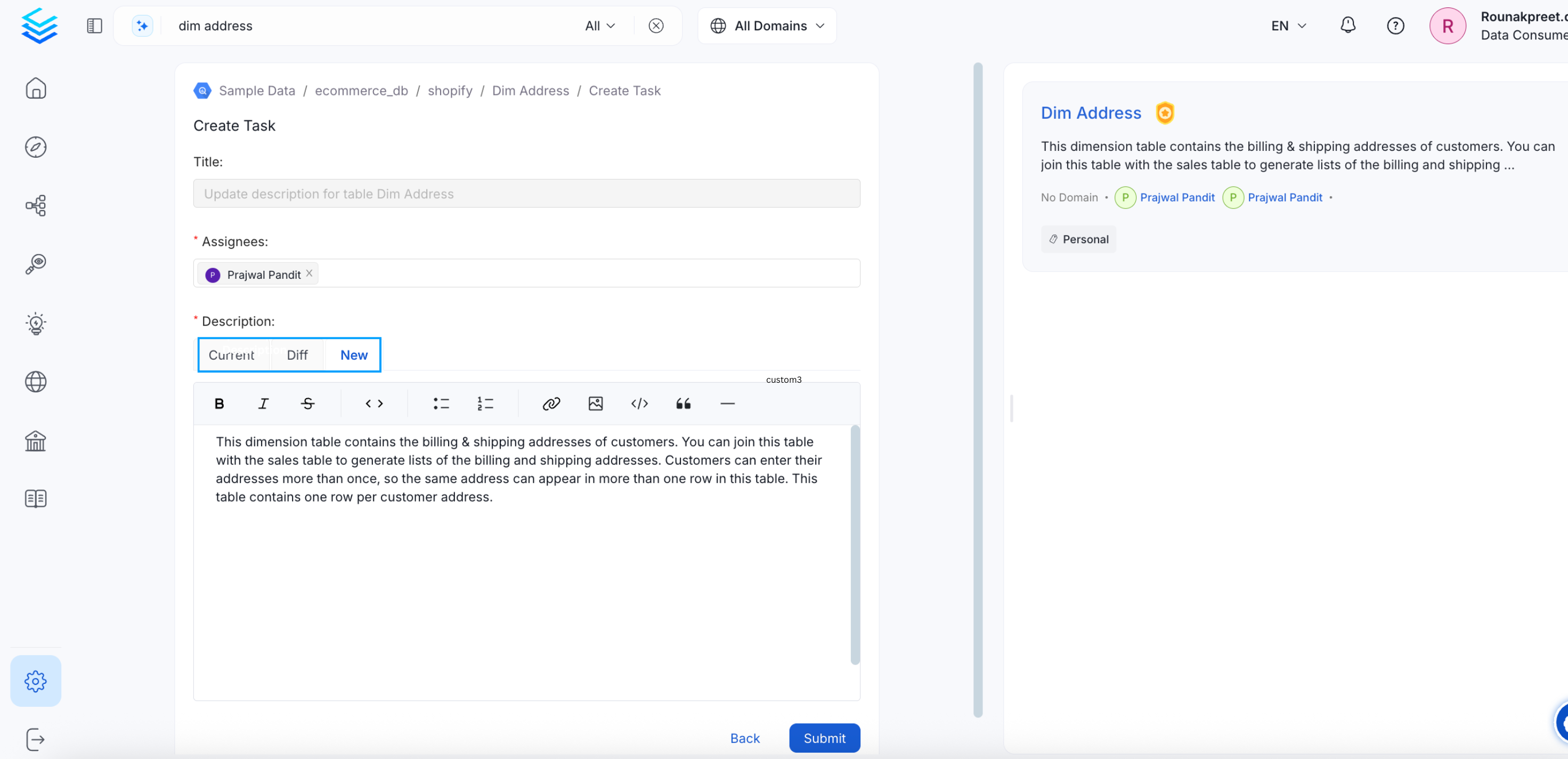
Create a Task for Data Asset Description
Once a task has been created, it is displayed in the Activity Feeds & Tasks tab for that Data Asset. The assignees, can either Accept the Suggestion or Edit and Accept the Suggestion. Assignees can also add a Comment. They can also add other users as Assignees.
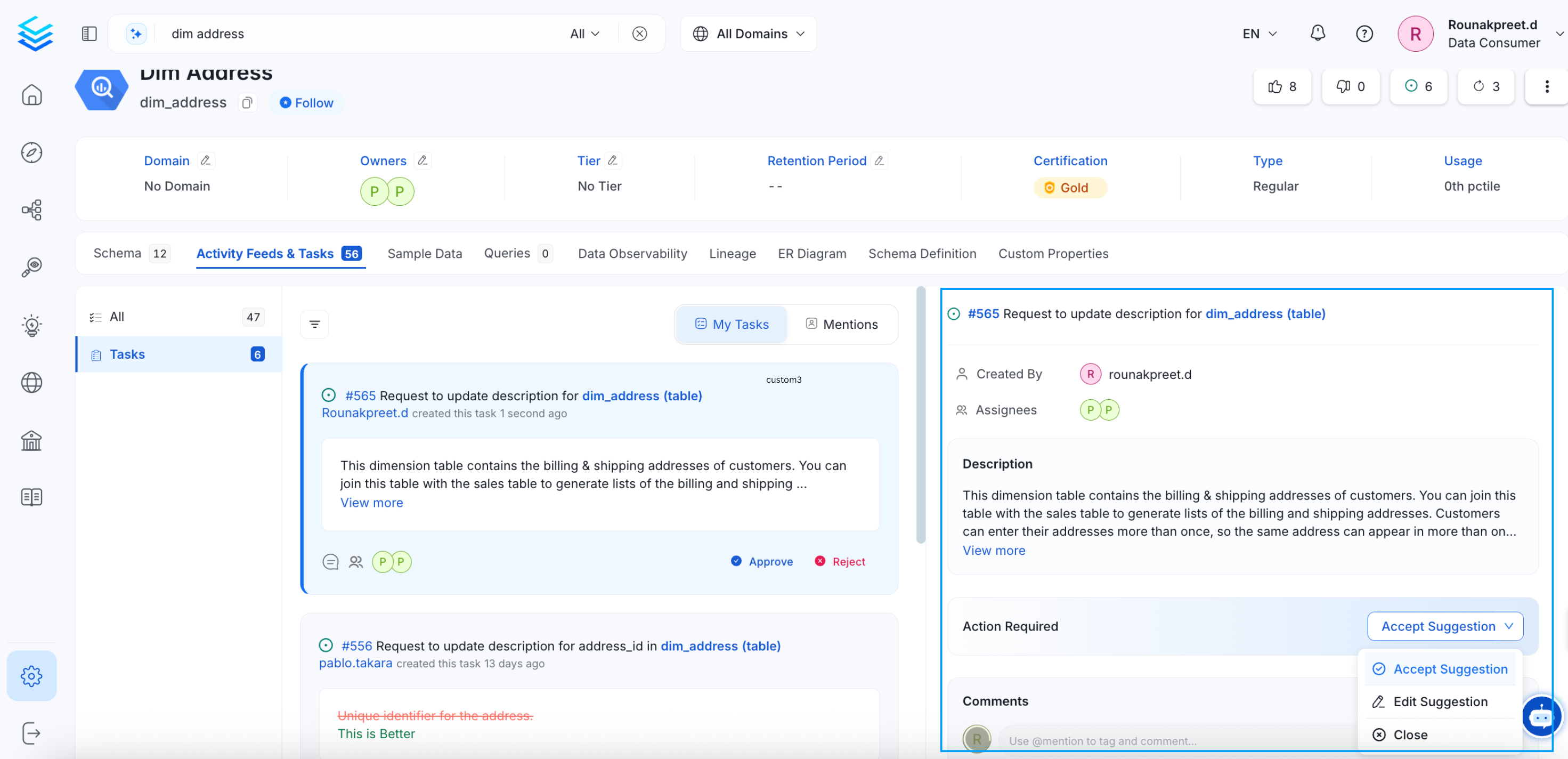
Task: Accept Suggestion and Comment
Conversations around the Data Asset Description
Apart from requesting for a description, users can also create a Conversation around the description of a data asset.
- Click on the Conversation icon next to the description.
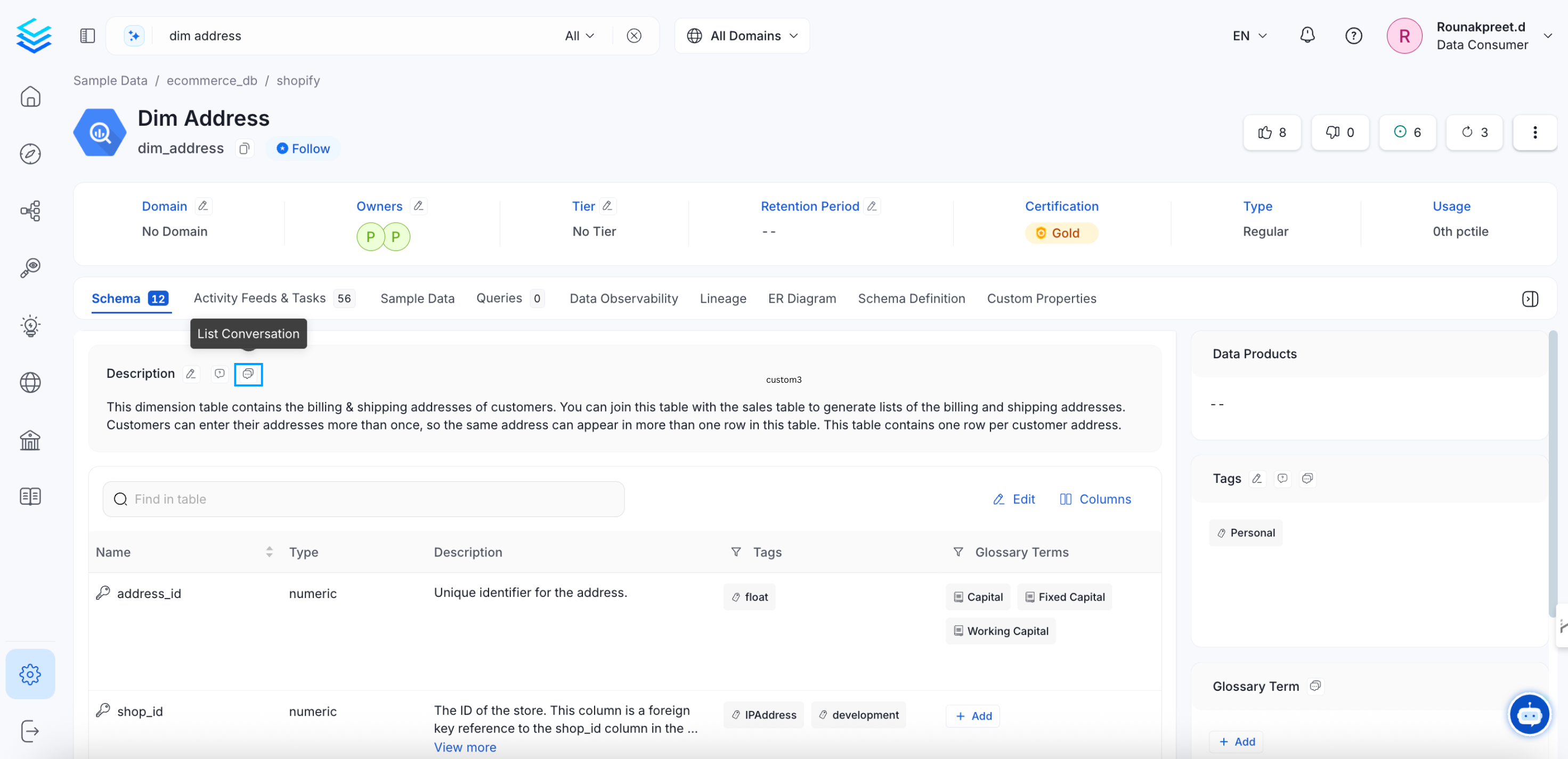
Conversation around Description
- Start a conversation right within the data asset page. Add @mention to tag a user or team. Add a #mention to tag a data asset.
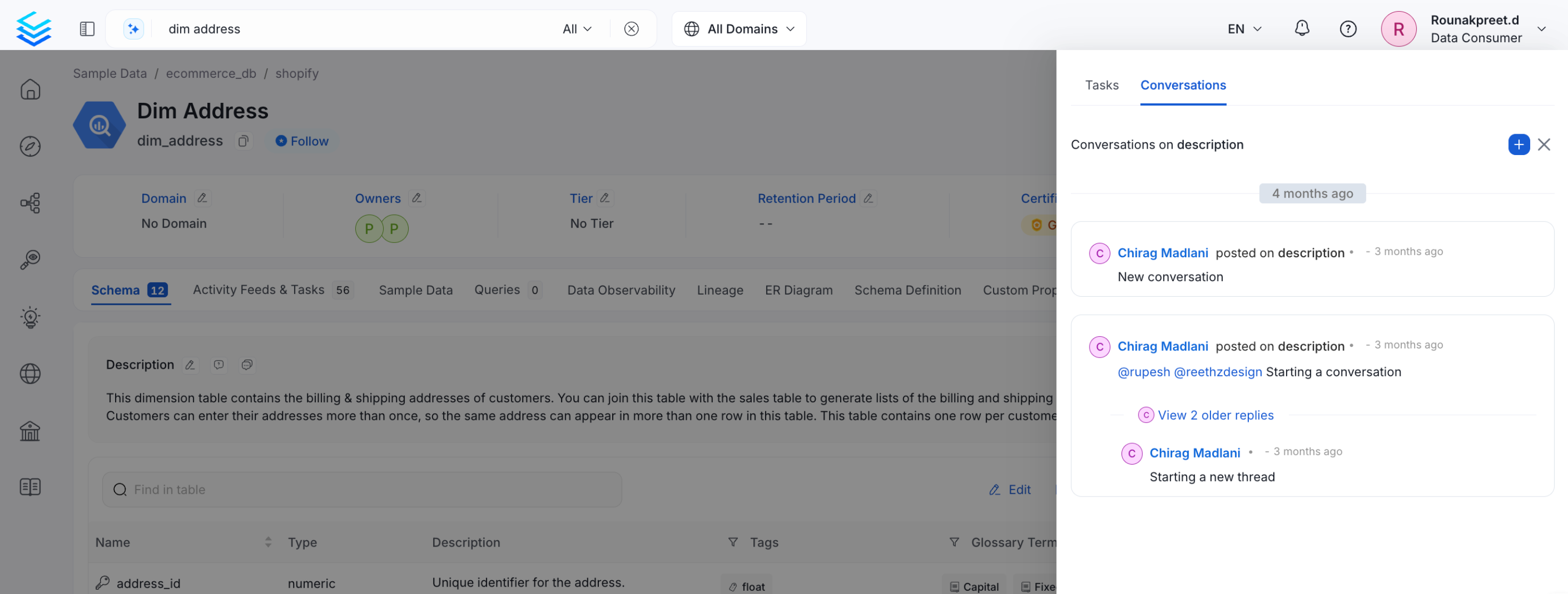
Start a Conversation
- Further in the conversation, users can Reply to discuss further as well as add Reactions, Edit, or Delete.
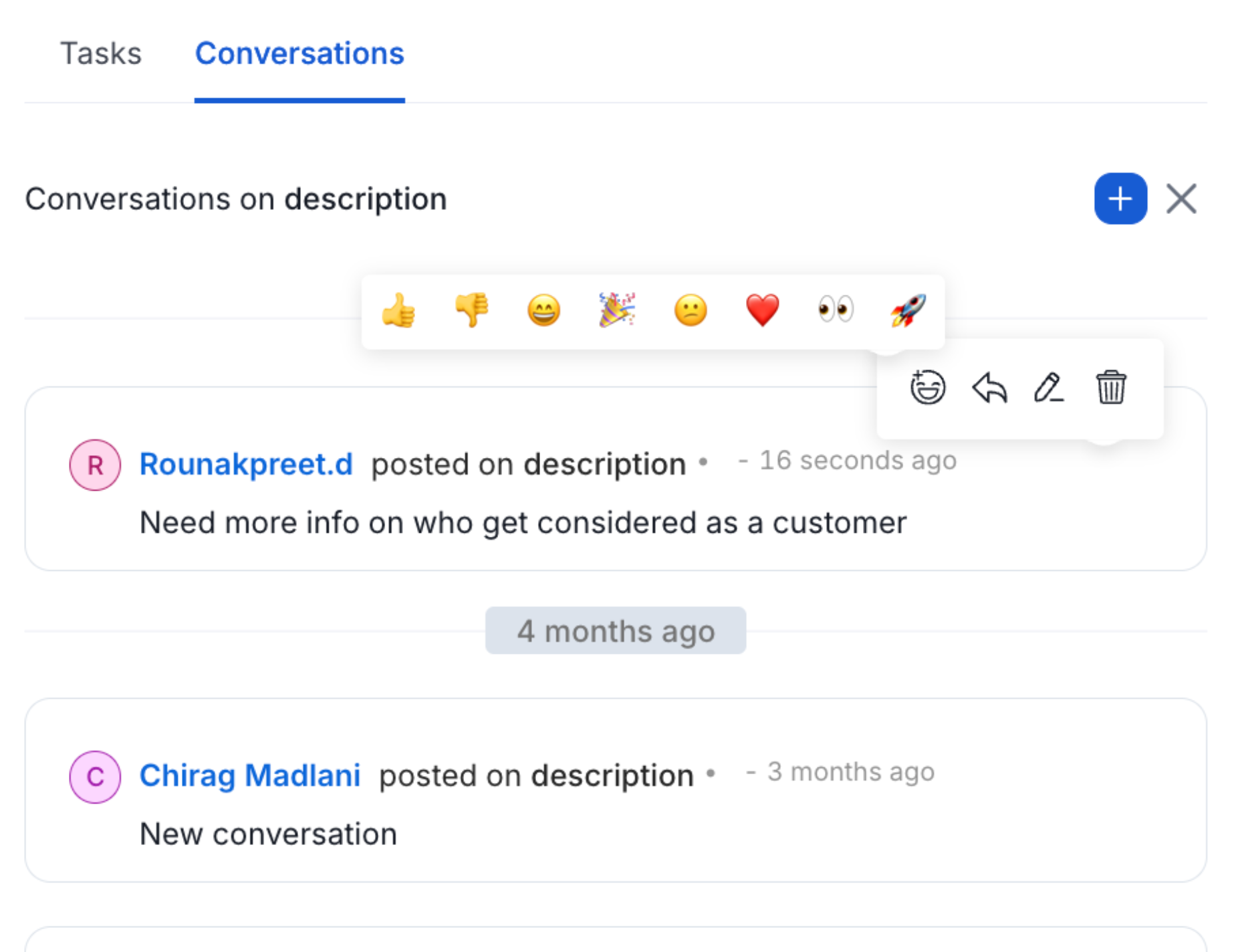
Conversation: Reply, React, Edit or Delete
Request for tags and discuss about the same, all within OpenMetadata.